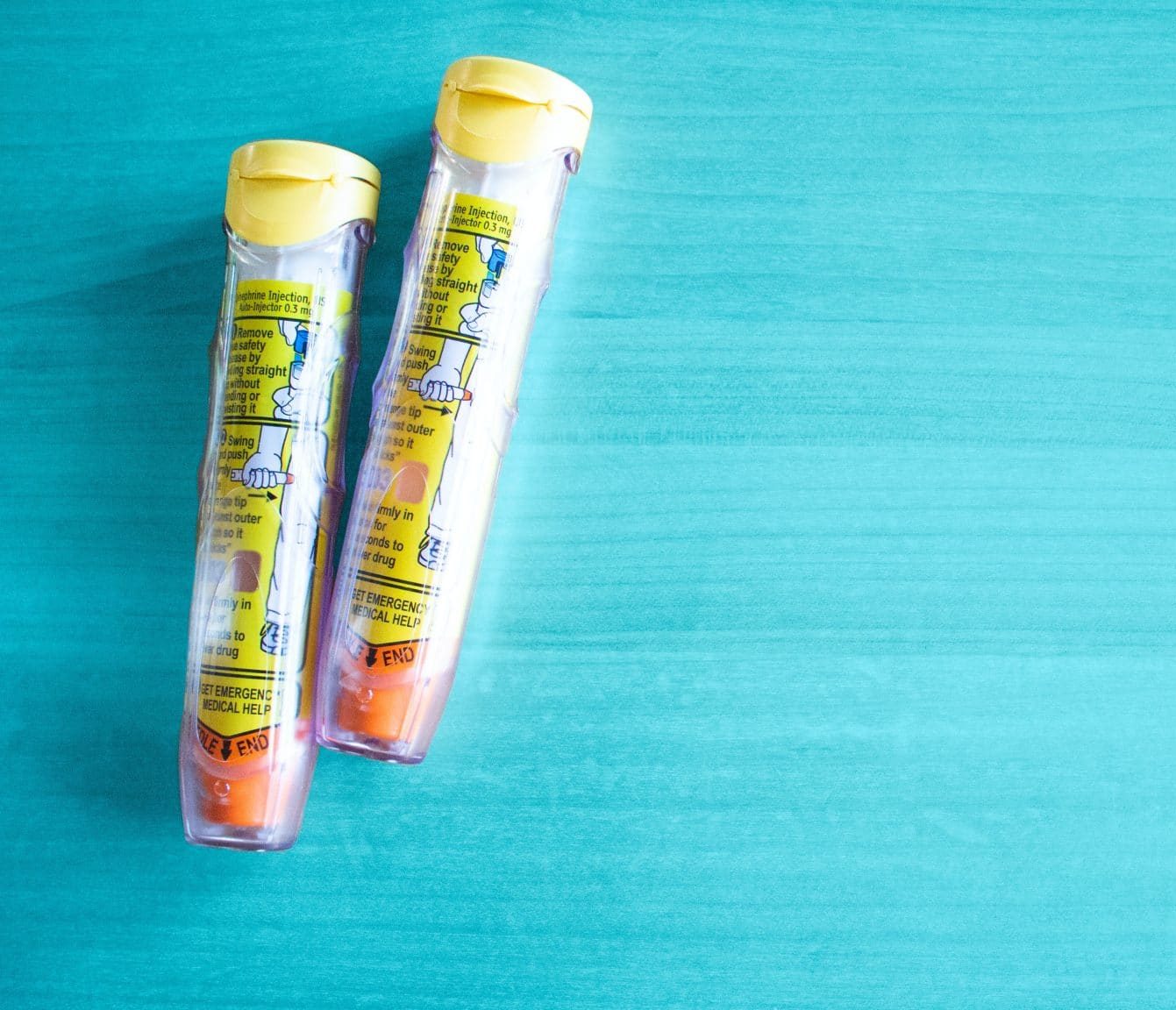If you or your child suffers from severe allergies or food allergies, you are likely vigilant about avoiding triggers and double-checking ingredients, like when you’re out to eat at a place like The Glass Onion.
However, accidental exposure can happen which is why it’s essential to know how to properly use an epinephrine injector, commonly referred to as an EpiPen. They can provide fast-acting, life-saving support to someone experiencing anaphylaxis.
What is Anaphylaxis?

Anaphylaxis is a severe allergic reaction that constricts the airways. It can be fatal if it’s not treated immediately. Signs of anaphylaxis include:
- Hives or flushed skin
- Dizziness and/or fainting
- Wheezing
- Trouble breathing
- Swollen tongue or throat
- Rapid pulse
- Low blood pressure
How To Use
Your doctor will go over how to use an EpiPen when they prescribe it for you. Make sure to ask any questions or get clarification if you need to. It will also come with instructions when you pick it up at the pharmacy.
The medicine should also come with an autoinjector trainer for you to practice with first so that you feel more prepared in case of an actual emergency.
If you or your child is exhibiting symptoms of anaphylaxis, you will want to:
- Remove the EpiPen from its container
- Remove the gray safety cap from the back of the pen, as it will not work otherwise
- Inject the epinephrine under the skin or into the muscle of the outer thigh only. Injecting the medication into a vein or any other part of the body increases the risk of serious side effects. If you are using an injector on your child, make sure to hold their leg in place and try to limit their movement before and during the injection. The pen can be injected through clothing.
- After the dose is fully administered, call 911. Epinephrine acts as a temporary fix, but anaphylaxis is still a life-threatening emergency that requires professional medical care.
- Safely and properly discard the EpiPen in its original container.
Other Tips
- Carry this medication with you at all times
- Check your kits regularly to make sure the liquid they contain is clear and colorless. If it has changed color or has particles floating in it, it is unusable.
- Do not use any remaining medicine left from a previously used pen.
- Store your injection kits at room temperature away from any heat, moisture or direct light.
If you have additional questions about using an EpiPen or wish to schedule an appointment with an expert allergist, contact Charleston ENT & Allergy today.
